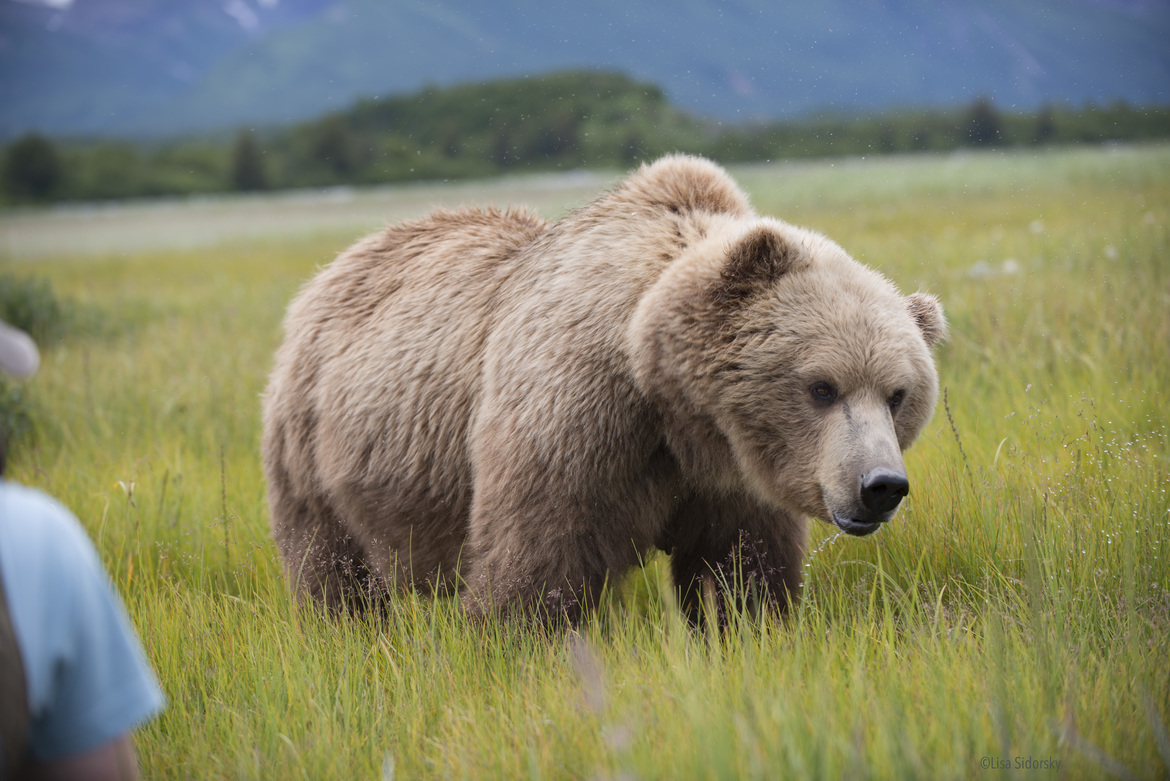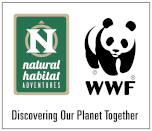Species: Ursus arctos horribilis or Coastal Brown Bear (I choose to forget the horribilis part) | Location: Katma National Park, USA
Being with a guide that respects the rules and the welfare of the inhabitants usually brings great results. Our wonderful guide, Brad Josephs, asked us to line up along a log and wait with our camera ready. A mother bear with 2 cubs was not too far away and hopefully they would wander closer to us. This mother bear and her cubs came over to our small group and ate, nursed, slept and played for a long time. When her cubs got too close to us, she grunted to them and they moved back. No interference was needed from the humans. It's a life changing experience when the bears are comfortable and everyone is calm and relaxed. This is the kind of experience you have to be with the right guide and company. Although this is technically not the best photo, it shows a great peaceful interaction when all species respect each other by leaving Brad in the foreground.
About The Photographer

Once a year or so I leave the house and travel to really cool places with wonderful wildlife and people and forget about all the problems. These pictures are a daily reminder of all that is right in the world.

